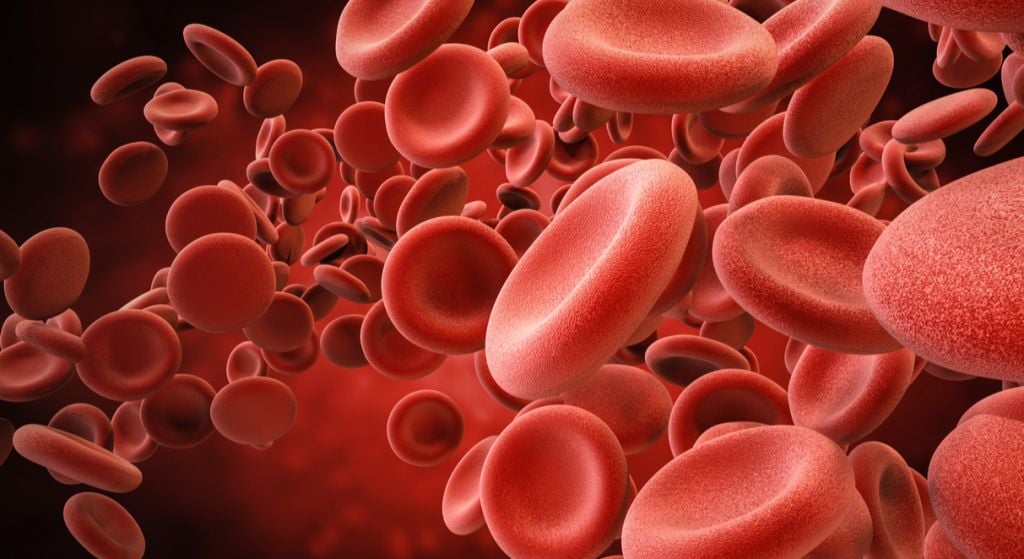Newsletter Signup - Under Article / In Page
"*" indicates required fields
People suffering from a severe blood disorder may only have to take a once-monthly drug following successful results from an ongoing study.
Global healthcare company, Sanofi, has been conducting a study into fitusiran prophylaxis and results have shown it reduces bleeds by 61 per cent in people with hemophilia A or B, with or without inhibitors.
Fitusiran is a new, investigational subcutaneously administered small interference RNA therapy, in development for the prophylactic treatment of people with hemophilia A or B, with or without inhibitor.
People with hemophilia A or B with inhibitors are at high risk of bleeding complications. Infusion of bypassing agents (BPAs) are suggested as alternative therapies for those who no longer respond to treatment because they develop inhibitory antibodies. The goal of these is to preserve joints which can be destroyed by recurrent bleeds.
Efficacy and safety
Positive data from the phase 3 ATLAS-PPX study evaluating the efficacy and safety of once-monthly 80 mg doses of fitusiran in adults and adolescents with severe hemophilia A or B who were previously treated with prior factor or BPA prophylaxis were presented recently in a late-breaking session at the International Society on Thrombosis and Haemostasias (ISTH) 2022 Congress.
The study met the primary endpoint and demonstrated fitusiran prophylaxis significantly reduced bleeding episodes compared to prior factor or BPA prophylaxis.
Gili Kenet, director of the Israeli National Hemophilia Center, said: “There is a continued need for transformative therapies that offer people with hemophilia consistent protection while also reducing treatment burden. These phase 3 results are encouraging and support fitusiran’s potential to provide people with hemophilia A or B, regardless of inhibitor status, with a meaningful reduction in bleeding episodes.”
A median annualized bleeding rate (ABR) of 0.0 was reported in the overall study population during fitusiran prophylaxis (80 mg monthly).
Key findings
Other key findings in the study, included evidence that the treatment resulted in a statistically significant reduction in estimated ABR of 61.1 per cent versus factor or BPA prophylaxis.
Zero bleeds were experienced by 63.1 percent of adults and adolescents treated with fitusiran compared to 16.9 per cent with prior factor or BPA prophylaxis.
Median ABR for treated bleeds was 0.0 with fitusiran prophylaxis for both participants with and without inhibitors compared to 6.5 and 4.4 for participants with and without inhibitors, respectively, on prior prophylaxis.
Of the 67 participants exposed to a least one dose of fitusiran, the most common adverse events (in less than six participants) were increased alanine aminotransferase, nasopharyngitis, and upper respiratory tract infection.
Consistent with the previously identified risk of fitusiran, suspected or confirmed thromboembolic events were reported in two participants (3 per cent).
Dietmar Berger, global head of development, at Sanofi: “These positive data support fitusiran’s potential to transform prophylaxis treatment for people with hemophilia A or B, with or without inhibitors, with a median annual bleed rate of zero across all patient populations. Moreover, we are excited to continue to explore fitusiran under an amended protocol that focuses on dose optimization, including lower doses and less frequent dosing regimens, with the potential for as few as six injections per year.”
Antithrombin target range
Sanofi is continuing to investigate the efficacy and safety of fitusiran under an amended protocol which includes lower doses and a less frequent dosing regimen maintaining an antithrombin target range of 15-35 per cent in all ongoing studies.
Fitusiran has the potential to provide prophylactic treatment for all people with hemophilia A or B, with or without inhibitors, with as few as six subcutaneous injections per year.
It is designed to lower antithrombin, a protein that inhibits blood clotting, with the goal of promoting thrombin generation to rebalance hemostasis and prevent bleeds. Fitusiran utilizes Alnylam Pharmaceutical Inc.’s ESC-GalNAc conjugate technology, which enables subcutaneous dosing with increased potency and durability. It’s currently under clinical investigation and has not been evaluated by any regulatory authority.
Sanofi began its journey with fitusiran back in 2017 when it partnered with US partner Alnylam.






